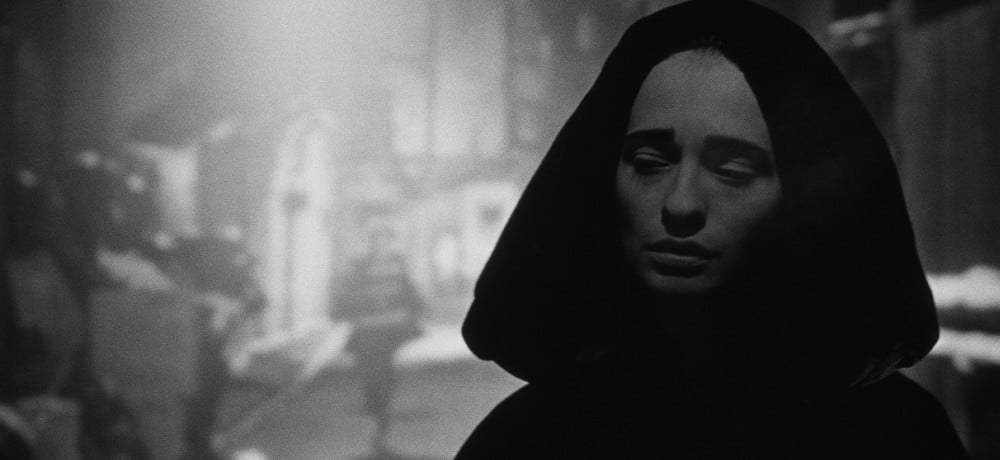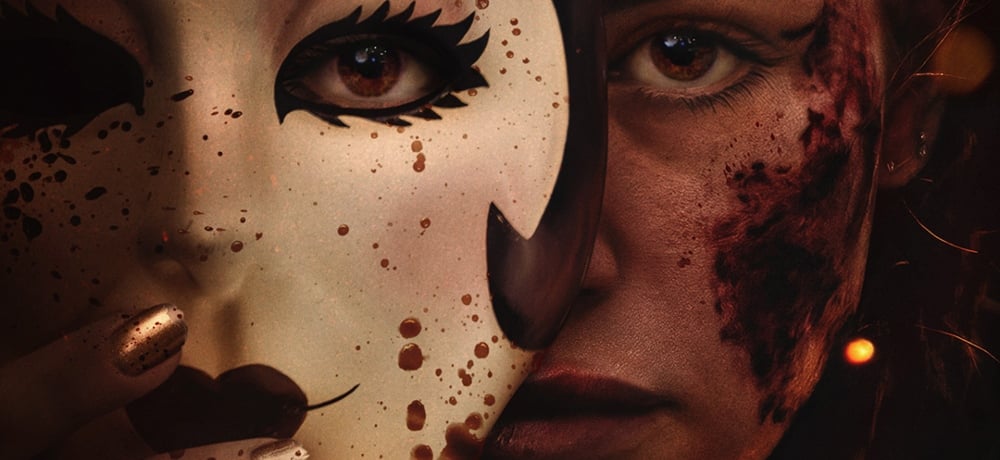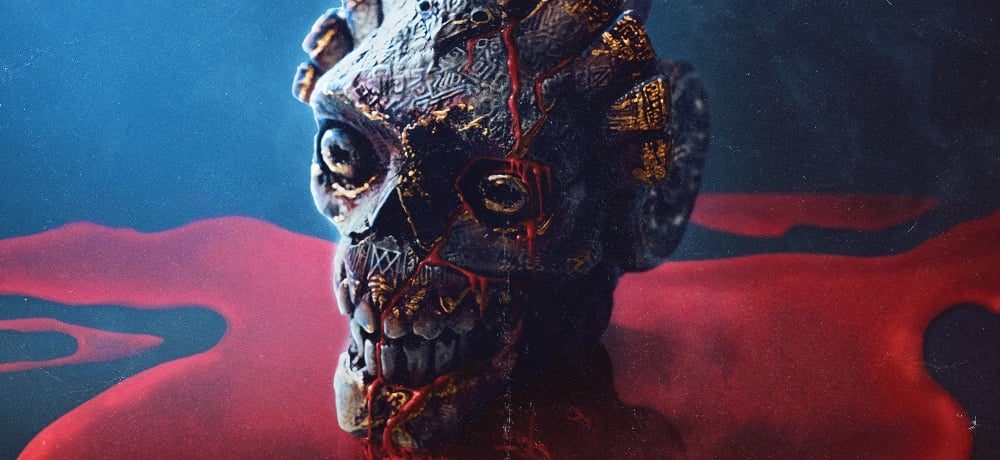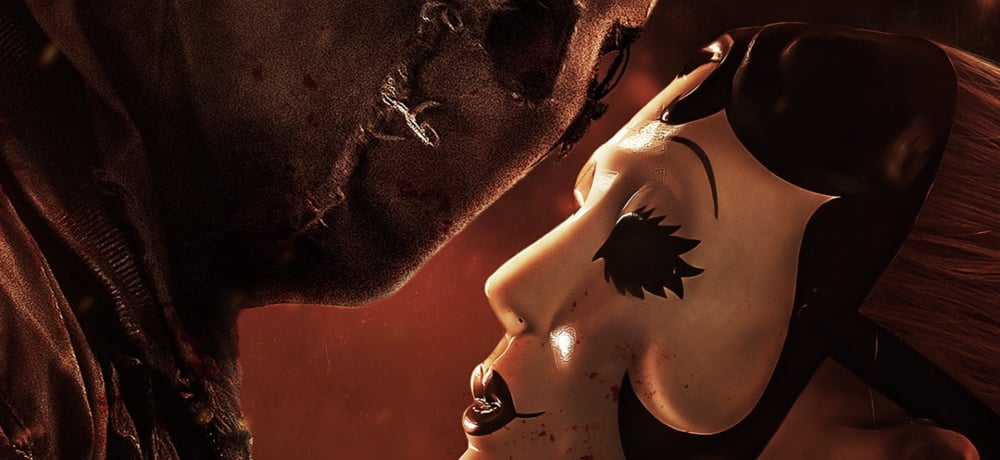





Norman's homecoming has added a sense of dread and urgency to every frame in Bates Motel Season 4, and with a new episode airing tonight at 9:00pm EST on A&E, Daily Dead recently had the opportunity to take part in a conference call with actor Freddie Highmore and executive producer/writer Kerry Ehrin. The duo discussed Freddie penning the script for the eighth episode of this season, Norman becoming more cunning than ever before, and not holding back in the final two seasons.
Freddie on if he has an interest in continuing to write and possibly direct episodes of Bates Motel and what inspired him to join the writers' room:
Freddie Highmore: Yes, I'd love to. First of all, I'm obviously incredibly grateful to [Carlton Cuse] and Kerry for allowing [me into] the writers' room and giving me an opportunity to write an episode and be a part of Bates Motel beyond merely acting. And I guess it was borne out of this desire to want to be involved in the wider process and it just seemed a little odd to me to put so much into this character for the four, five months that we shoot in Vancouver and then let it completely go and just sort of go away and ignore it for a few months. And then come back and be like, "Oh let's just see what's been happening." ...And so that's where the desire was borne out of and now very much so I am sort of loving—I love the writing experience on Bates Motel and being part of that team and am writing more things.
Freddie on the research that went into Norman's intensified dual personality and playing a "trickier, more mature" Norman this season:
Freddie Highmore: Yes, I mean, that was something that certainly was discussed in the writers' room, and Kerry has done a lot of research, I know, into the effects of DID [Dissociative Identity Disorder] and whether Norman himself fits neatly into that description. I don't think anyone is entirely one thing. But from my point of view, the season arc for Norman has been interesting to both at the same time try and maintain people's sympathy towards him, but also develop this slightly more cunning or Machiavellian side to him whereby there's a sense of self-interest in him acting selfishly, when in number seven he says to Julian that he knows how to make people think that he's normal.
There's this sense of a trickier, more mature Norman that has come out who knows how to manipulate and that's been interesting to play with and to develop. And the key with that has been at the same time we must be careful not to know—for the audience to know exactly when Norman is being genuine and when he's not. So that there's still a sense of being with him on his journey as opposed to being completely bewildered by whether his actions are merely manipulative or genuinely coming from his heart.
Freddie and Kerry on whether or not Norman was telling the truth in the pivotal scene with Dr. Edwards (Damon Gupton) in Episode 7, in which Norman admits that he is somewhat scared of what the future holds for him:
Freddie Highmore: It's a really interesting question, because I remember discussing this with Kerry beforehand and Nestor [Carbonell], who obviously directed the scene on the day. And to me, I think it ultimately is a mixture of both. I think that he exploits genuine fears that he has and real emotions that he does feel, instead of entirely making them up. But perhaps he puts on a little bit of a show in exaggerating them in the moment.
I think that usually when you're upset about things, you try hard to cover it up. I always use this phrase of "playing against the emotion" and I feel like in that moment, Norman perhaps isn't entirely genuine in that he doesn't try and behave in the way that usual people would, and sort of hide and cover that emotion up. And I feel in doing so, maybe there is a slight sense of manipulation because he's very open and certainly wants Dr. Edwards to feel it.
And of course, he has his agenda. His agenda in that scene is to make sure that whatever happens, he's going to get out of the institution and that's his driving goal, and that can't help but affect these genuine feelings that he's feeling, but that perhaps he uses for his own self-interest.
Kerry Ehrin: One of the really fun things about writing the show is that so often in this show, characters are not saying out loud what they're actually feeling. They're saying something else and it's very layered. And it's like there's a whole other emotional dialogue that goes on under each scene as opposed to just what they're saying. And I think it's one of the things that makes—also it's just like the acting is just so layered and amazing—but those scenes are just really fun to write.
And also, this idea that you cannot be both honest and manipulative at the same time is funny, because you absolutely can be. My personal feeling in that scene was that there was a part of him that was scared to go home and that knew he was kind of screwed. But he had to go home and he had established this trust with Dr. Edwards. And there were just so many different things going on in that scene, and Freddie and Damon Gupton just did it beautifully.
Freddie on the upcoming big payoffs that have been set up throughout the show's previous seasons:
Freddie Highmore: Knowing now that we have a five-season arc to the show and that this season that's currently airing and the next one will be the last has allowed the writers and Kerry and Carlton to push forward towards an endpoint with more haste and determination than ever before. There's not this sense of needing to hold back anything for any longer because now is the time to reap the rewards of the payoff [of] the setup that we had over the entirety of three seasons.
And so the payoff is what starts to be developed in this fourth season and will continue into the fifth season. And that's the most exciting point of the show. Because if you started the show at the start of episode eight, or nine, or ten, or 15, it wouldn't quite work. There'd be something odd and there would be something not unbelievable, but it would be very difficult to get inside those characters. But what's great is that we have that huge amount of backstory that we know and that we are invested in, and that this is the opportunity, in a way, for Norman coming home. There's a sense of an attempt of a fresh start, and of resetting things and moving towards that endpoint.